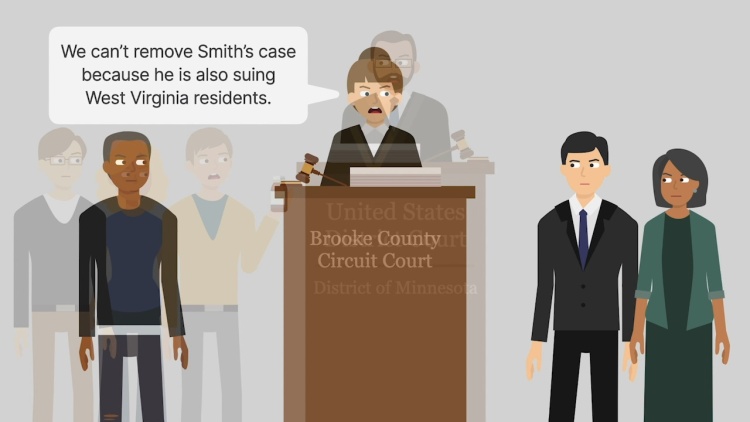Smith v. Bayer Corporation
United States Supreme Court
564 U.S. 299 (2011)

- Written by Denise McGimsey, JD
Facts
George McCollins sued Bayer Corporation (Bayer) (defendant) in a West Virginia court, claiming that Bayer’s sale of an allegedly hazardous drug, Baycol, violated West Virginia’s consumer protection statute and express and implied warranties. A month later, Keith Smith and Shirley Sperlazza (Smith) (plaintiffs) sued Bayer and others (defendants) in a different West Virginia state court, alleging similar claims to McCollins. Neither McCollins nor Smith knew of the other’s suit. Bayer removed McCollins’s action to federal court on the basis of diversity, but Bayer could not remove Smith’s case, because other defendants in the action were West Virginia residents. Both McCollins and Smith sought to represent a class of all West Virginia purchasers of Baycol. The federal court denied McCollins’s motion for certification on the ground that, because each class member would need to prove actual injury, individual issues predominated. McCollins did not appeal. Bayer moved the McCollins court to enjoin the Smith court from considering Smith’s motion for certification. The district court granted an injunction. The United States Court of Appeals for the Eighth Circuit affirmed, applying the relitigation exception to the Anti-Injunction Act, 28 U.S.C. § 2283. Smith petitioned the United States Supreme Court for certiorari.
Rule of Law
Issue
Holding and Reasoning (Kagan, J.)
What to do next…
Here's why 907,000 law students have relied on our case briefs:
- Written by law professors and practitioners, not other law students. 47,100 briefs, keyed to 996 casebooks. Top-notch customer support.
- The right amount of information, includes the facts, issues, rule of law, holding and reasoning, and any concurrences and dissents.
- Access in your classes, works on your mobile and tablet. Massive library of related video lessons and high quality multiple-choice questions.
- Easy to use, uniform format for every case brief. Written in plain English, not in legalese. Our briefs summarize and simplify; they don’t just repeat the court’s language.






